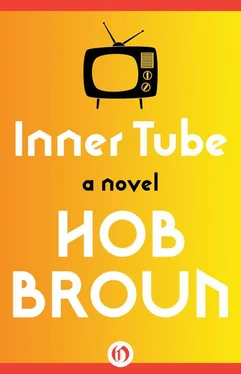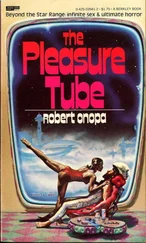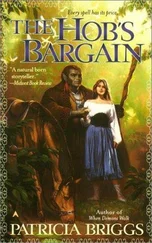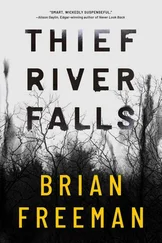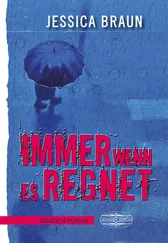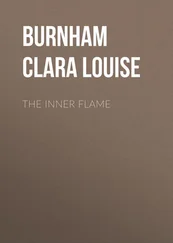Evidently, Andrea was very much in love with me, although I had given her no good reason to be so. It unnerved me. Anyway, she was so bloody earnest about it, blew the notes so hard. Combined with some mutant species of Old World submissiveness, this studious approach of Andrea’s sometimes tempted me to strangle her.
We had known each other but a few days when she came to see where I worked. The presence of a living woman made the customers fractious and a few regulars grumbled across the street to the bar to sit in the dark. With the same sharp attention she would bring to a gallery full of Mirós or Rosenquists, Andrea looked over the merchandise. After a few minutes she carried an open magazine to the counter.
“Would you like for me to do this?” she asked quietly.
The photograph showed a woman cleaving herself with a black rubber dildo. I began to wish I were in the bar.
“You only have to ask.” Her eyes were shiny brown lakes.
The woman in the photograph grimaced; Andrea was expressionless. Her somber zeal bored into my skull like a steel screw.
“I’d ask you out for shots at the Forest Club,” I said, barely able to control myself.
But we had our harmonic periods as well. One of Andrea’s uncles was a grocery broker with a warehouse at China Basin. We’d head over there on a Saturday and load up with garbanzo beans, macaroni, olives, pomegranates, and marinated artichoke hearts. Then we’d go back to her one-room flat and eat like starved nomads while listening to the Giants game on the radio. Then we would ascend.
A previous tenant had cut a hatchway to the roof and installed a ladder. He wasn’t much as a carpenter and when it rained — which in San Francisco could be any minute now — the hatch was a difficulty. But Andrea had a tarpaulin she’d fasten over the top and a spaghetti pot to catch whatever leaked through to the bottom.
“I’ve got to have open space,” she said.
Golden Gate Park was at least three miles away.
Andrea had extra-long wiring on her record machine so that along with cushions and army blankets, we could haul it on up and listen to the atonal composers she liked so much. In each other’s arms, in the soot and waning sunlight, we would whisper like children.
Andrea told me stories about her family: the very devout grandfather with no left arm who several years ago had brought in the largest raisin harvest in the history of Inyo County; the cousin who, at least peripherally, had been involved in the assassination of a Turkish diplomat; and her eldest sister, who’d moved south, changed her name, and could now be seen as a corrupt D.A. on a semipopular daytime serial.
But the point of it all was simply this: We were so young we had no stories about ourselves. Probably that is a large part of what kept us after one another despite the negative signposts — the eagerness, even desperation, for heightened moments we could hoard away.
Must I always present things in such crass relief? Where is the balance? I should say that holding tight on that asphalt roof, I didn’t care that her paintings were derivative and cold, her dark mysteries so unnecessary. I felt enveloped and pleasantly stupid and I loved her.
Then in October Andrea was raped. Not by drunken seamen or nonwhite sociopaths, but by two fellow art students who cornered her late one night in the sculpture studio. They threw her over stacked bags of plaster of parts and pummeled her. As the second one burst in her, one flailing arm reached the purse that had fallen behind her. She plunged the nail file into the film major’s neck and ran, ran for blocks thinking of water to clean herself. On the apron of an all-night gas station bright as an operating theater, she remembered not to.
“You want a case, we need the semen,” said the bland resident.
I saw a 4-H sponsor petting a prize Charolais bull.
We sat on turquoise plastic chairs in the ER. The bruises on Andrea’s face were turning four or five different colors, but she was dreadfully calm.
I said: “You should have gone for his eye.”
“Blind him, shit, I was trying to kill him,” Andrea said. “Missed the jugular, that’s all.”
And that was the end of her weeping in bed. By instinctive understanding, no words passed between us; we simply resumed. Her silent encouragements were new, and the hardened ridges of her muscle. Even her surface textures seemed different: glassier, more like an altar statue. In her face, which I could watch without pangs now, was something I was certain had not been there before. She seemed distanced in a dream. I realized that I was to her now no more than a bright but finally weightless preoccupation, like a silver boar’s-head toothpick holder shipped to a lonely colonial outpost along with the rum and ropes of tobacco. I felt a kind of sick relief.
The trial came up just after New Year’s. Both defendants wore J.C. Penney suits and dark ties. Andrea appeared in a navy pleated skirt, and a different Peter Pan blouse each day. The gallery was so packed with her relatives that the usual aficionados — spidery women with liver spots, retired meat cutters — could only whine and cajole in the marble hallway outside.
The “forensic” phase was disastrous: The hospital resident was furtive and snappish, the color enlargements of Andrea’s lacerations stuck at the processing lab. Prosecutor Tedesci told us not to worry.
As the sole witness to the crime, Andrea was required to take the stand. She averted her eyes, spoke in the same low, liquid voice no matter what the question. The impression she gave was of sorrowful resignation, her spirit damaged beyond repair. Tedesci was overjoyed.
He said: “You want to work any more of my cases, sweetie, just name a figure.”
The jury was out less than an hour. Andrea’s relatives applauded the verdict, but grumbled at the ten-year sentences.
Tedesci had more reassurance. “They’ll be nothing but dog meat down at Chino, believe me.”
“The way I feel, I don’t know…not vindicated.”
Andrea stared at the vertical punch cards of the downtown skyline and I continued to massage her feet. We were up on the roof, under a cafe umbrella shimmed into a vent pipe. It was misting lightly and there was no moon. What we were really talking about, we weren’t talking about. And though I sensed the inevitable out there somewhere, I was convincing myself I had to have her, though she had slipped through a cosmic tear.
“Normalcy,” she finally said, drawing back.
“What?”
“I don’t think I can afford you anymore.”
“Yeah, you’re right.” My jaws were painfully clenched. “I’d ruin you.”
“Normalcy,” she repeated.
I had no idea what she meant.
Irv was highly excited when I called that night looking for sympathy. He’d torn up the linoleum in his back room and was testing the stress tolerances of the framing timbers.
“I’m going to have an orange grove,” he explained. “PVC pipe irrigation with a controlled drip, Gro-Lux fixtures with…”
“Irv, Irv. I’m at the bottom of the shaft and no way up.”
“Skip the melodrama,” he said irritably. “Swing by here in your tank and let’s see what we can do about soil medium at this hour.”
“Okay, okay.”
Irv always was a good influence. We drove out to the Lincoln Park golf course and filled the trunk of the Olds with sod from the sixteenth green.
“Lotsa worms,” Irv said.
We laughed like boys in the pitch dark.
On the way back, he told me of an upcoming houseparty across the Bay. There I met the wise man who cut holes in his shoes.
And it was not long after that I fled the city that has always wanted to be somewhere else.
Читать дальше
